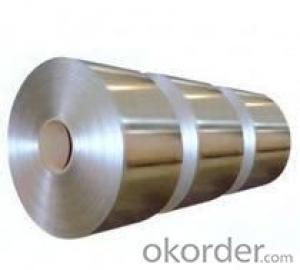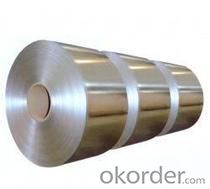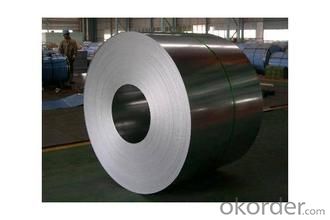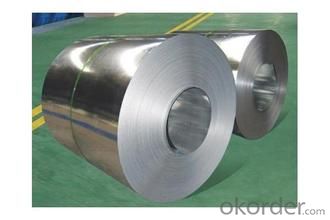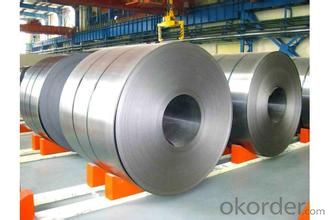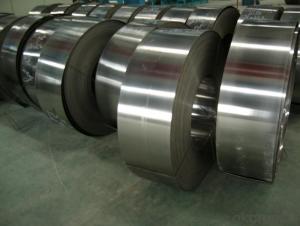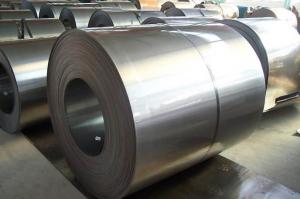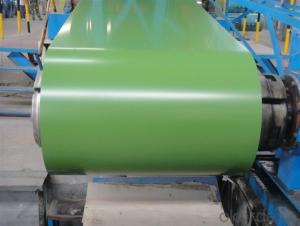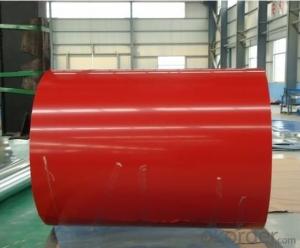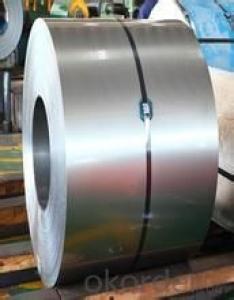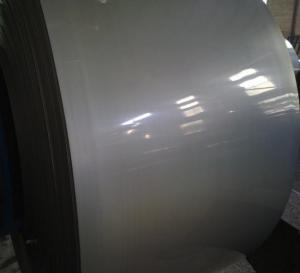cold rolled Steel - SPCE in Good Quality
- Loading Port:
- Tianjin
- Payment Terms:
- TT OR LC
- Min Order Qty:
- 100 m.t.
- Supply Capability:
- 5000000 m.t./month
OKorder Service Pledge
OKorder Financial Service
You Might Also Like
Description:
The raw material of cold rolled steel coil/sheet is high quality hot rolled product, and after pickling, kinds of new technology and new process of global cold rolling production have been applied. Therefore the manufacturing, home appliance, automobile etc.
Specification:
COLD ROLLED STEEL | |
THICKNESS | 0.3-0.5MM |
WIDTH | 600-1250MM |
SHEET LENGTH | 0-6000MM |
COIL ID | 508MM OR 610MM |
SURFACE TREATMENT | MATT FINISH/BRIGHT FINISH, OILED/DRY |
ANNEALING METHODS | BRIGHT ANNEAL/BLACK ANNEAL |
Advantage:
1. High Quality SurfaceFinish
2. High Dimensional Precision
3. Excellent mechanicalproperty
Package & Delivery:
Package details: Standardseaworthy packing for international delivery.
Delivery: According to theexact quantity of your order.
Images:

Quality of the goods could be guaranteed. The finished product has a variety of excellent capabilities, such as continuous rolling, degreasing, annealing, skin pass, slitting and cut to length line etc. Along with it many rocessing capability and smooth, flat surface. It’s widely used in outdoor and interior decoration, furnishing.
- Q: What are the common applications of hot-dip galvanized steel coils?
- Hot-dip galvanized steel coils are widely utilized across various industries due to their exceptional resistance to corrosion and long-lasting durability. These coils find numerous applications in different sectors, including construction, automotive, appliances, agriculture, electrical and telecommunication, transportation, and industrial sectors. The following are some of the common uses of hot-dip galvanized steel coils: 1. Construction: The construction industry extensively relies on hot-dip galvanized steel coils for applications like roofing, siding, gutters, and downspouts. The coils' corrosion resistance ensures that structures can withstand harsh weather conditions, resulting in low-maintenance and long-lasting buildings. 2. Automotive: In the automotive sector, hot-dip galvanized steel coils are widely employed for manufacturing body panels, frames, chassis, and structural components. These coils provide enhanced protection against rust and offer high strength, ensuring the longevity of automotive parts. 3. Appliances: Hot-dip galvanized steel coils are utilized in the production of various household appliances such as refrigerators, air conditioners, ovens, and washing machines. The coils' corrosion resistance and aesthetic appeal make them an ideal choice for these appliances. 4. Agriculture: The agricultural sector commonly uses hot-dip galvanized steel coils for constructing greenhouses, livestock shelters, fences, and irrigation systems. The galvanized coating protects the steel from corrosion caused by exposure to moisture and chemicals commonly found in agricultural settings. 5. Electrical and Telecommunication: The electrical and telecommunication industries employ hot-dip galvanized steel coils for manufacturing transmission towers, poles, cable trays, and electrical conduits. These coils' corrosion resistance and high strength ensure the safety and reliability of these infrastructure components. 6. Transportation: Hot-dip galvanized steel coils play a significant role in the transportation industry, particularly in manufacturing trailers, shipping containers, and chassis components. The galvanized coating provides protection against corrosion caused by road salt, moisture, and various environmental factors. 7. Industrial Applications: Hot-dip galvanized steel coils are widely used in various industrial applications, including storage tanks, pipelines, ductwork, and industrial equipment. The coils' corrosion resistance and durability ensure the integrity and longevity of these structures and equipment. In conclusion, hot-dip galvanized steel coils have a wide range of applications in industries such as construction, automotive, appliances, agriculture, electrical and telecommunication, transportation, and industrial sectors. The coils' corrosion resistance, durability, and aesthetic appeal make them a versatile and extensively used material in these applications.
- Q: How are steel coils coated for specific applications?
- Steel coils are coated for specific applications using a process called coil coating. In this process, the steel coils are cleaned, treated, and then coated with a layer of paint or other protective material. The coating is applied evenly and precisely to ensure optimal performance and durability in the intended application.
- Q: How are steel coils used in the manufacturing of automotive bodies?
- Steel coils are used in the manufacturing of automotive bodies as they are rolled into flat sheets and then formed into various car body parts, such as panels and frames. These coils provide the necessary strength and durability to withstand the rigors of daily use and ensure the structural integrity of the vehicles.
- Q: What are the common coil transportation options?
- Common coil transportation options include using flatbed trucks, rail transportation, and cargo ships. Flatbed trucks are commonly used for shorter distances and provide easy loading and unloading of coils. Rail transportation is often used for longer distances, offering cost-effective and efficient transportation. Cargo ships are utilized for international shipments, allowing for large quantities of coils to be transported across long distances.
- Q: Can steel coils be used in the production of construction machinery?
- Yes, steel coils can be used in the production of construction machinery. Steel coils are often used as raw materials for manufacturing various components of construction machinery, such as frames, supports, and structural parts. The strength, durability, and resistance to corrosion of steel make it an ideal material for construction machinery, ensuring the longevity and reliability of the equipment.
- Q: How are steel coils tested for tensile strength?
- Steel coils are typically tested for tensile strength through a process called tension testing, where a sample of the coil is pulled until it breaks. This test measures the maximum amount of force the steel can withstand without breaking, helping to determine its tensile strength.
- Q: What's the best way to clean granite countertops and stainless steel appliances? My countertops especially always look dull and streaky. Thanks!!!!!!!
- Stainless steel kitchen appliances look best when they're clean and shiny. To clean tough stains and cooking grease, and give them a dazzling shine, try the same detergent you would use when washing the dishes. One formulated to cut grease works especially well.This also works well for general kitchen cleaning.Waterless hand soap also works great as a polish, simply rub on, and polish - no rinsing. :) Don't use an ordinary kitchen cleaning product to clean granite. The newest technology uses peroxide and detergents to penetrate soiled areas. Simply spray a product such as Bio-OX Citrus Concentrate on the soiled area, allow it to penetrate for a few minutes, then wipe clean. Baking soda can be sprinkled on for a more abrasive cleaning action. Repeat if necessary. Granite can also be cleaned using warm, sudsy water (a mild detergent such as a grease cutting dish detergent or laundry detergent is fine) or a solution of borax and water. Thoroughly rinse and buff dry. To remove stains from granite, make a paste of baking soda and hydrogen peroxide or baking soda and Bio-OX Citrus Concentrate and cover the stain with the paste. Cover the paste with a damp cloth, leave overnight, then wet down and scrub with a nonmetallic scrubbing pad. Rinse thoroughly with clean water. Wipe up any spills as they happen so they don't soak in, and always dry coutertops after washing the dishes.
- Q: I'm analysing horse stirrups and would like to know the disadvantages to stainless steel? - thanks
- For horse stirrups the main disadvantage to stainless steel is the manufacturing cost. Stainless steels tend to work harden, and are subject to their own peculiar forms of corrosion, but I see little implication to either of these factors when used as a stirrup iron or a safety latch. Stainless steel is also subject to self welding, or galling, this would be of no concern for the irons, but could result in the pivot of the safety latch freezing (I have never known anyone to ride with the safety latch closed, however).
- Q: How do steel coils contribute to sound insulation in buildings?
- Steel coils can contribute to sound insulation in buildings due to their high density and ability to absorb and dampen sound waves. The compact arrangement of steel coils within walls or floors helps to reduce the transmission of sound, thus providing a barrier against noise and enhancing the overall acoustic performance of the building.
- Q: What are the factors that affect the quality of steel coils?
- There are several factors that can affect the quality of steel coils. Some of the key factors include the selection and quality of raw materials used, the manufacturing processes employed, the level of expertise and skill of the workforce, the adherence to strict quality control measures, and the overall condition and maintenance of the equipment used in the production process. Additionally, external factors such as environmental conditions and transportation methods can also impact the quality of steel coils.
Send your message to us
cold rolled Steel - SPCE in Good Quality
- Loading Port:
- Tianjin
- Payment Terms:
- TT OR LC
- Min Order Qty:
- 100 m.t.
- Supply Capability:
- 5000000 m.t./month
OKorder Service Pledge
OKorder Financial Service
Similar products
Hot products
Hot Searches
Related keywords
